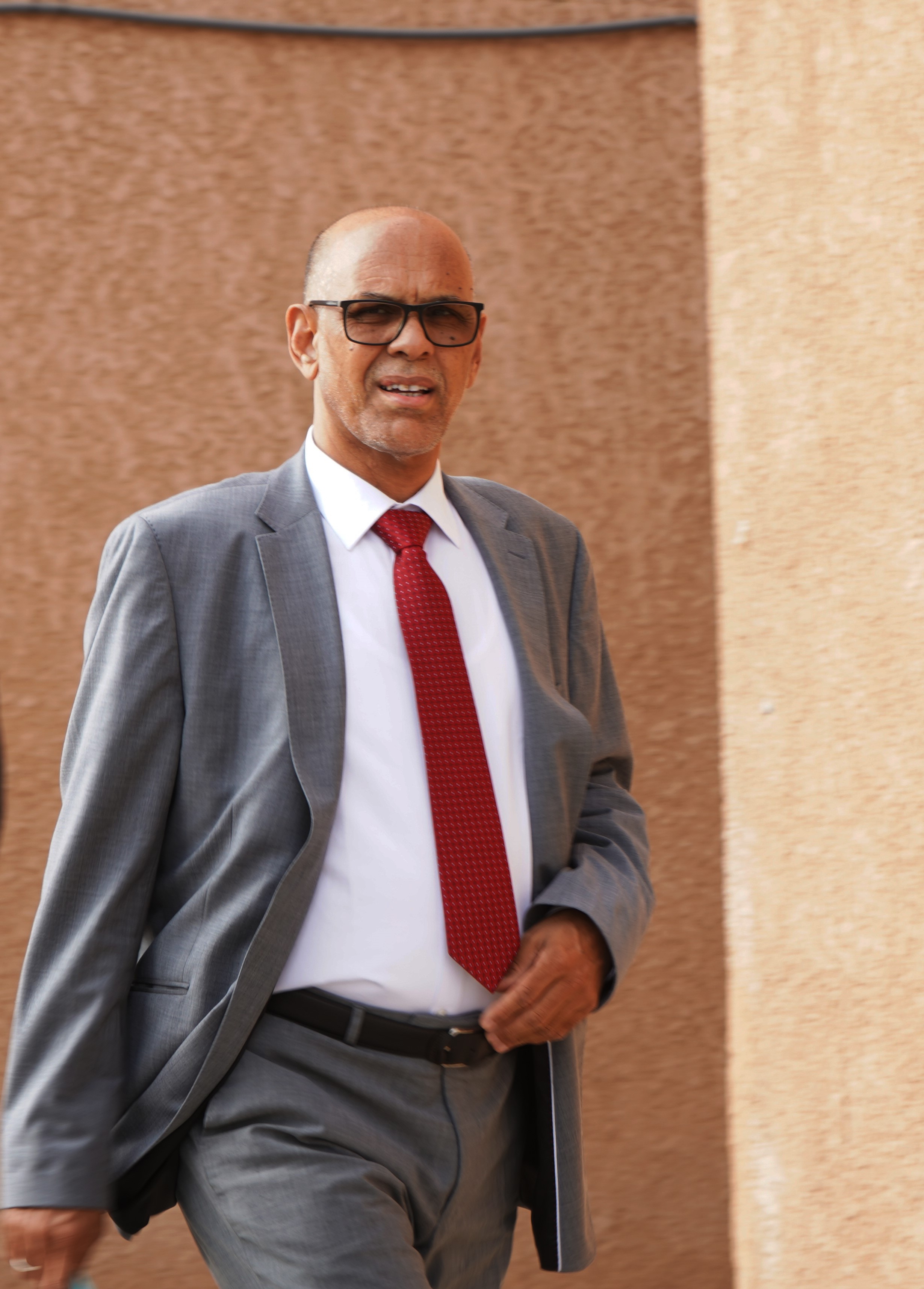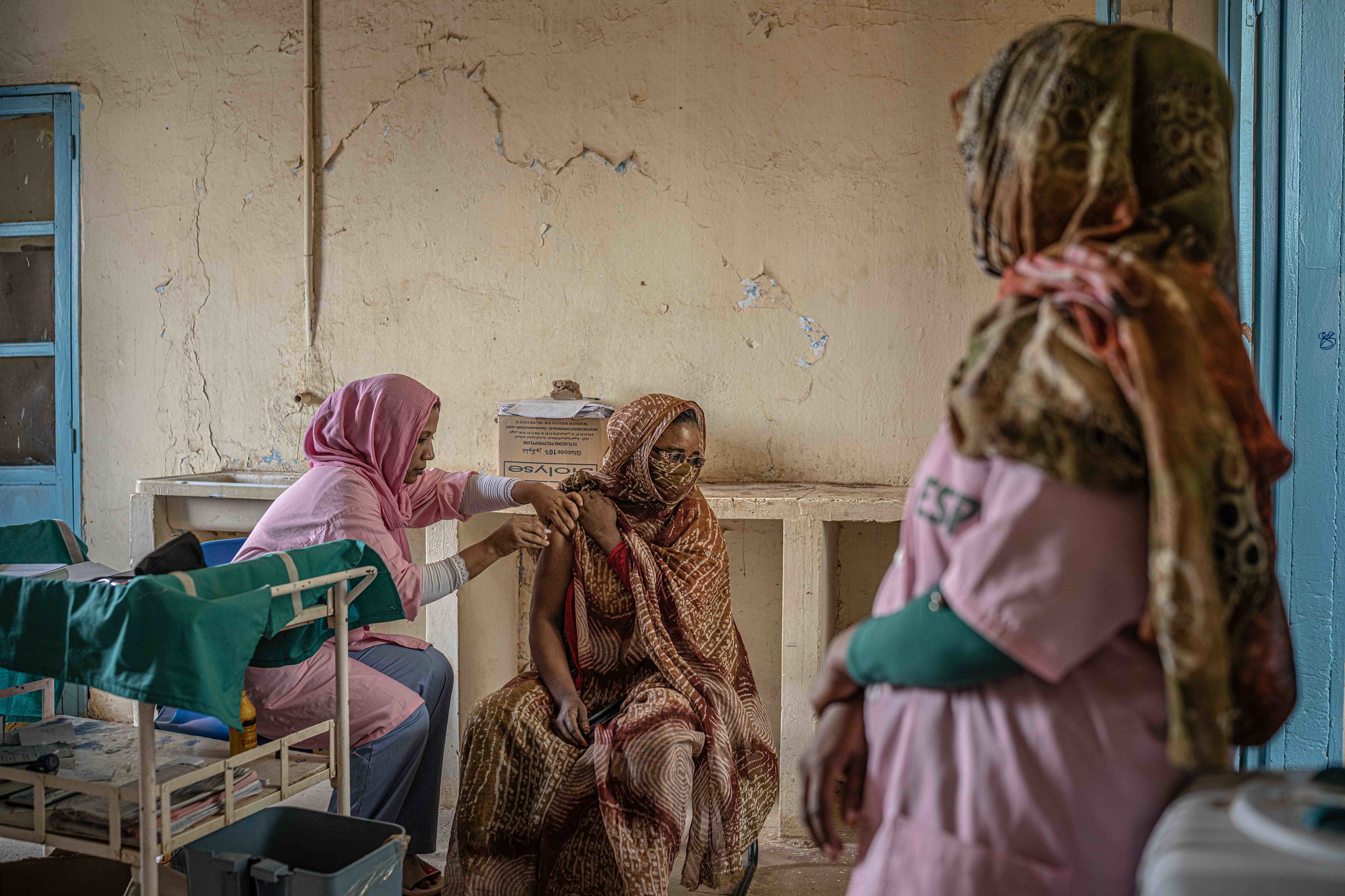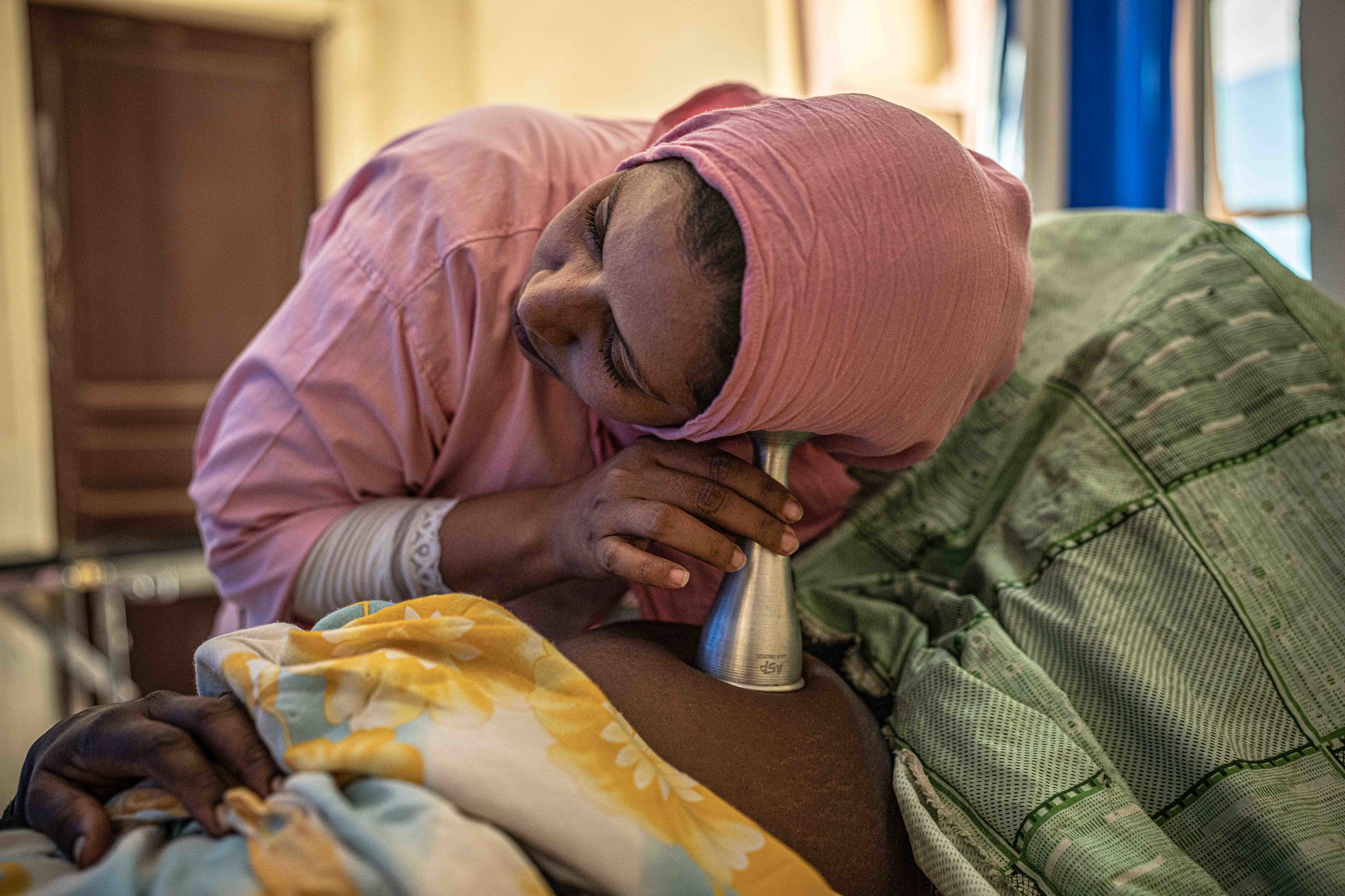Mauritania: “Investing in midwifery training to reduce maternal and child mortality”
 Ahmedou Ould Armiyaou is Director of the National Higher School of Health Sciences (ENSSS) in Nouakchott. In this interview, he tells us about the support provided to this school by the Temeyouz project (financed by AFD and implemented by Expertise France) to adapt midwifery training to healthcare needs and international standards, and contribute to improving maternal and child health in Mauritania.
Ahmedou Ould Armiyaou is Director of the National Higher School of Health Sciences (ENSSS) in Nouakchott. In this interview, he tells us about the support provided to this school by the Temeyouz project (financed by AFD and implemented by Expertise France) to adapt midwifery training to healthcare needs and international standards, and contribute to improving maternal and child health in Mauritania.
Can you tell us about the background and role of midwives in maternal and child health in Mauritania?
In Mauritania, the health system faces significant challenges which have a major impact on people’s health. The maternal mortality rate is very high, with 454 maternal deaths per 100,000 live births in 2021. This is largely due to the limited access to quality healthcare during pregnancy, childbirth and in the post-partum period. Rural people and the poorest are especially affected. There are also social and traditional practices that are harmful to women’s health, such as female genital mutilation and early marriages.
In this context, midwives have a crucial role to play in promoting maternal and child health. They give pregnant women regular check-ups, detect obstetric complications, and provide care during the delivery and post-partum period, as well as advice on family planning. So, investment in midwifery training is a priority for improving people’s health, especially for women and children who are the most vulnerable.
Can you tell us about the type of support offered by the Temeyouz project?
The Temeyouz project, which is financed by AFD and implemented by Expertise France and the Ministry of Health, is helping the ENSSS adapt midwifery training to national health needs and international standards. This transformation requires a redefinition of the profession and the training of midwives, so that we can provide a more structured response at national level.
The support to the ENSSS focuses on strengthening four areas: governance, human resources to improve the training environment by developing the skills of midwife teachers, pre-service training to offer training that caters to national and international requirements, and in-service training to develop the skills of practicing midwives and build the capacity of health facilities.

How does French expertise contribute to strengthening the training environment?
International technical expertise, especially French expertise, is helping us transform our training programme, so that it meets the standards of the new training framework developed by the Ministry of Health and fulfils the criteria for higher education.
We’ve signed partnership agreements with several schools in France and elsewhere, including the midwifery schools in Amiens and Angers, to benefit from their expertise in midwifery training.
These partnerships promote exchanges between the two countries, allowing our teachers to benefit from specialised training, in particular for active learning with a focus on simulation. This makes it possible to practice procedures and interventions on manikins before applying them on real patients.

How does the midwifery training take place at the ENSSS and what are the prospects for the midwives?
The ENSSS is the only school in Mauritania to offer a three-year professional degree in midwifery that meets the standards of higher education in Mauritania, the West African Health Organisation (WAHO) and the International Confederation of Midwives (ICM). This accredited training allows students to continue their studies towards a Master’s Degree in Health Sciences or a PhD.
We currently have 140 student midwives between the first and second years. They benefit from a new pre-service training programme developed by the Ministry of Health with support from the Temeyouz project. After this training, the midwives should be able to handle a normal delivery from start to finish.
After their training, the Ministry’s Human Resources Department deploys the midwives across all the health facilities in Mauritania. Their role varies depending on the situation. In health centres, they handle family planning and basic consultations, such as prenatal consultation, vaccination, pregnancy follow-up, the prognosis for delivery and, depending on the prognosis, the midwife refers the woman to the nearest referral centre. In hospitals, they handle deliveries and gynaecological problems.
What impact does midwifery training have on maternal and child health in Mauritania?
It is essential to invest in midwifery training to reduce maternal and child mortality in Mauritania. Through their training, the midwives can provide quality care during the pregnancy, delivery and post-partum period. They can also manage obstetric complications during the pregnancy and after the delivery. This makes it possible to quickly detect problems and take steps to avoid tragic outcomes.
However, to measure the impact of this training on public health, it is essential to invest in the sustainability of the action, by ensuring a long-term follow-up of the training and training several cohorts of midwives to measure the impact on maternal and child health.
Find out more on Temeyouz project sheet 


